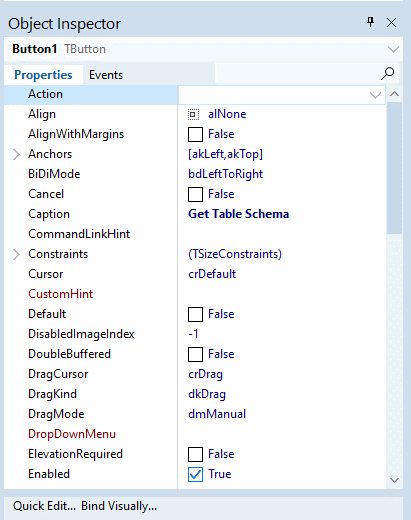One week after I wrote about
Warren Buffet's 25-5 rule I created my own "Top 5" list. However, this time I put a little twist on it. Instead of creating a to-do list of things I wanted to accomplish in the next six months, I created a list of the top 5 things I have accomplished within my lifetime. It took me about five or six days but I finally came up with my list.
#4 on my list: "Creating a software product back in 1991 that still generates sales today."
If you check the list of
Delphi releases you'll notice that Delphi didn't exist in 1991. Turbo Pascal was the tool I used to create that first version of my software. Here is a picture of Zilch v1.11. Unfortunately, I do not have a copy of my very first version 1.0.
 |
| Zilch Version 1.11 (Version 1.0 not available) |
Learning Turbo Pascal was fun. I owe my passion and desire for computer programming to
Jeff Duntemann. He wrote a book called "Complete Turbo Pascal". It was that book that taught me everything I needed to know about computer programming, and the Pascal language. In fact, the reports within my software are pulled using the double-linked list example in his book. Duntemann does a brilliant job of explaining this concept.
That book is by far my absolute favorite programming book. I used several snippets of code, and in some cases entire routines from the examples in his book. Like the linked list routines. I remember getting close to being done. My software was about a month away from being released as shareware. And it dawned on me, "Holy crap. I've used a bunch of code from this book and it's copyrighted. Can I do this?" So I called Jeff and the conversation went something similar to this...
Me: Mr. Duntemann.
Jeff: Yes.
Me: You don't know me. My name is Michael Riley. I'm a US Marine developing software in my spare time.
Jeff: That's good. I like Marines.
Me: Mr. Duntemann, I've...
Jeff: Please call me Jeff not Mr. Duntemann.
Me: Okay. I've been using your book "Complete Turbo Pascal" to learn how to write my software. And I've embedded several of the code snippets into my software. The're all over the place. I've even used the complete linked-list code routines. Am I allowed to do this? Can I use your code in my own software?
Jeff: Of course. That's why I wrote the damn book.
Me: Whew, that's a relief. You have no idea how worried I was. I really like how you explained double linked lists.
Jeff: I get quite a few calls from people telling me they have my book and asking to explain something. I remember the phone ringing at 1 in the morning one time and I was explaining linked lists to this guy. I remember using a kite metaphor. You see it's like a kite with a tail, and attached to that tail is another kite with a tail. And attached to that tail is another kite. Kites and tails with attached kites keep going on and on and on.
I love this guy. That was 1991 and Jeff and I have been friends ever since. One of these days I'm going to have to get Jeff to sign this book. I've completely destroyed the spine. I even had to use clear shipping tape to hold the spine together.
 |
| Complete Turbo Pascal Third Edition - Jeff Duntemann |
My books have been scattered all over my basement office. When I want one I go searching from pile to pile. Moving stuff, looking around. It's frustrating and not very productive. Arrrgh!
It's been like this for a long time. It's not just books that are unorganized. It's me. It's everything. Besides, the older I get the harder it is to keep track of stuff. Stuff I need to do. When it needs to get done. Who I owe it to. Who owes me stuff. All that stuff.
So, I dusted off my old Franklin Planner that I haven't used since 2010. Inserted the new planner pages on Wednesday night and started using it the next day. Life is so much better now. I set a task for organizing my basement home office on Saturday. Then I decided to gather up all my Delphi books and put them on one single bookshelf. Wow, I have quite the collection.
 |
| Click to enlarge image |
And guess what? All those books are tied to my #4 lifetime accomplishment: "Creating a software product back in 1991 that still generates sales today".
However, it not about what I did. It's about people. The people who helped me while I was in the midst of doing the thing I did. Like I said, I owe my #4 to Jeff Duntemann. Without him this never would have happened. Look what it's lead to. It's because of Jeff that I stayed enthused, and stayed passionate. Passionate enough to buy 32 Delphi books over the past 28 years. Not to mention the eBooks sitting on my computer. Thank you Jeff.
Don't worry I've told this to Jeff already. He's not hearing this for the first time reading it here. What kind of guy do you think I am.
I have a challenge for you! I want you to create your own "Top 5" list of lifetime achievements.
It doesn't matter if it takes you a week, or two weeks, or longer. Just do it. Then sit and think about your accomplishments. Think long enough about them until you discover who helped you get there. And then, reach out to them and let them know.
Enjoy,
Gunny Mike
zilchworks.com






























